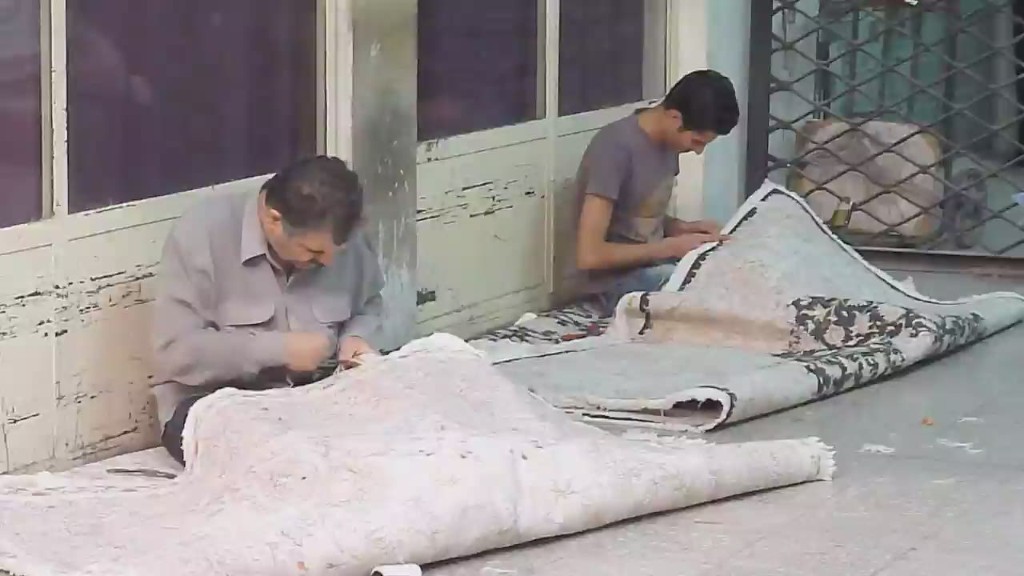
No one ever said reaching a lasting agreement with Iran on its nuclear ambitions would be easy. But investors are beginning to size up the potential of an economy that has been isolated for three decades.
The checklist of attributes Iran possesses is impressive. It has the second largest population in the Middle East with 80 million, 9% of proven oil reserves, 18% of proven gas reserves and an abundance of strategic minerals.
"If you put together the consumer potential of Turkey, the oil reserves of Saudi Arabia, the natural gas reserves of Russia, and the mineral reserves of Australia you have it all in one country," said Ramin Rabii, CEO of Iranian investment firm Turquoise Partners, on a recent visit to the United Arab Emirates.
Related: Nuclear talks with Iran continue
Iranians have had to live with the pain of being largely shut out of the global economy for years. Layer after layer of sanctions have been applied, but the noose really tightened in 2012, when the European Union joined a U.S.-led effort to shut down oil trade.
Iran's top four customers of oil products -- China, India, Japan and South Korea -- fell into line with the global effort on sanctions, cutting back imports by a third or more in the past few years.
Related: Expect oil to tumble if Iran deal gets done
Deeper measures were implemented that included limiting access to shipping insurance, and blocking Iranian banks from the SWIFT global electronic payments system.
As a result, the economy shrank by 5 percent in 2013. Iran still has a double digit rate of unemployment. Inflation soared to more than 45 percent at one point when the Iranian currency was under pressure.
With GDP of about $366 billion, Iran's economy is about 20% smaller than it would have been without sanctions, according to a study by the U.S. Congressional Research Service. That gives it a world ranking of just 18.
Under the combative eight year rule of former President Mahmoud Ahmadinejad, uncertainty prevailed. Just a few years ago, Iran was threatening to disrupt oil shipments off its coast.
The tone has changed dramatically in 18 months. President Hassan Rouhani told attendees at the World Economic Forum in 2014 that he wanted "constructive engagement."
When Goldman Sachs drew up its list of "Next 11" most promising emerging markets back in 2007, Iran made the grade. The investment bank cited its energy potential, human capital and technology.
The country also has a strong, but often overlooked, industrial base. It's a heavyweight when it comes to autos, cement and steel. Iran produced 1.6 million autos in 2010, and was ranked third in cement production last year.
But energy gets business leaders most excited. Iran wants to regain the number two position within OPEC, after Saudi Arabia, by increasing production by a million barrels a day within three months if given the green light.
Related: Saudi Arabia: Don't blame us for oil's plunge
Oil minister Bijan Zangeneh told CNN in November that Iran is ready to play ball with American oil giants, who cannot currently enter the sector due to U.S. laws restricting investment.
"Iran is open to U.S. companies. They have been limited by U.S. administrations. As for cooperation after the lifting of U.S. sanctions, I don't think it is a difficulty for us," Zangeneh said.
How quickly Iran bounces back is directly linked to those sanctions being dismantled, and that may not be simple.
The White House, for example, will have to convince Senate and House Republicans to pass legislation to reverse the work done by President Obama to bring Iran to the bargaining table.
And global banks will be nervous about rushing back in. HSBC (HSBC) and Standard Chartered (SCBFF) were hit with stiff fines for sanctions busting.
"Larger financial institutions, they are like big tankers," said Ramii of Turquoise Partners. "It is difficult to change their compliance policies. I would say it would take a few months, or a few years, for larger financial institutions to come back to Iran," he added.
It is this uncertainty and legal complexity which may hinder Iran becoming the next racy emerging market and fulfilling its lofty aspiration to be a top 10 economy in the coming decades.


